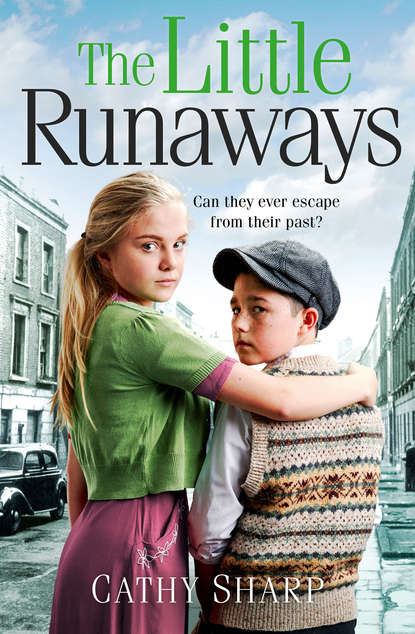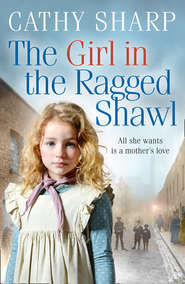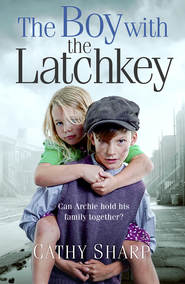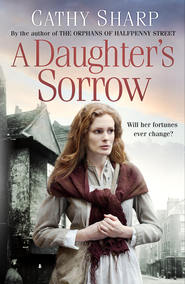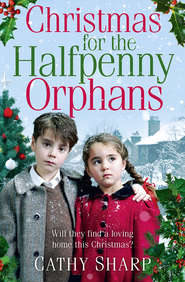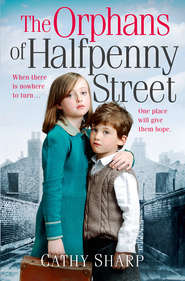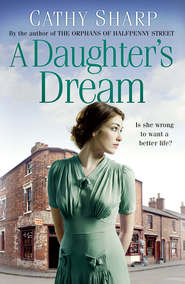По всем вопросам обращайтесь на: info@litportal.ru
(©) 2003-2024.
✖
The Little Runaways
Настройки чтения
Размер шрифта
Высота строк
Поля
Ma had run at one of the men pulling at bits of wood and bricks in a fruitless attempt to discover anyone under the rubble, hitting at him in her terror, her eyes wild with fear and grief.
‘Where are they? Where did they take them? I begged them to come to the shelter but they wouldn’t listen …’
He shook his head sadly. ‘If they were in the house when the bomb dropped they’ve had it, love. No one could survive under this lot. They took a couple of direct hits – the bloody Boche bastards! Why can’t they drop ’em on the Docks or the factories and leave the poor bloody people alone for a while?’
Ma had staggered away, her face ashen. She stood staring at the piles of rubble that had housed her parents, her sister’s family and her best friend, Molly, as if she couldn’t take it in. Feeling cold and wanting her breakfast, Nancy pulled at her mother’s arm.
‘Come away in, Ma. If they find them they will tell us …’
‘Get in yourself and look after your brother …’ Ma said furiously. ‘Leave me be, can’t you?’
Nancy had never known her mother like this before. She’d always been cheerful, out in the street as soon as her chores were done, chatting to her friends with her hair in wire curlers and a headscarf. Now she looked like a wild creature, blonde hair flying in the breeze, her children forgotten as she mourned all those she’d lost. It was to be the first of many changes.
‘Ma, hadn’t you better get the tea on?’ Nancy said now, trying to rouse her mother from her brown study. It didn’t do to dwell on the past, even though she missed her gran and her aunts, particularly Aunt Molly, who hadn’t truly been an aunt. If Molly Briggs had been alive Nancy could have talked to her about what was happening. She would have given Ma a good shake and told her to pull herself together.
‘You’ve still got your children and a home, Sheila Johnson, so think yerself lucky!’ Nancy could hear Molly’s voice challenging her mother but it was only in her head, because Molly had died in the rubble of her home.
Ma was still sitting there, just nursing what was probably an empty beer bottle. Nancy took the wet sheets out to the yard at the back and threw them over the line. She just hoped her father wouldn’t notice when he came back for his tea.
When Nancy got back to the kitchen she discovered that Terry was home from school, or wherever he’d been – more likely down the Docks, helping out with casual jobs. He’d cut a doorstep of bread himself and was getting dripping all over his chin and down his jacket, which was second-hand off the market but the best Nancy could get for the money her mother gave her from her meagre housekeeping.
‘Ma!’ Nancy shook her shoulder. ‘You need to get Pa’s supper on or he’ll be angry when he gets back. I’ve got all this ironing to do and the bedrooms need a turn-out.’
Ma lifted hopeless eyes to hers. ‘You can do the bedrooms tomorrow, Nance. Get your pa’s tea like a good girl. The chops are in the pantry and there’s some cabbage and cold taties you can fry together. I don’t feel well … I think I’ll go up and lie down.’
‘I’ve got lots to do tomorrow,’ Nancy said as her mother left the room but Ma didn’t answer.
What about me? Nancy wanted to shout and scream after her. Every day she had to look after her brother, get the shopping, go to school and clean the house and her mother did nothing but sit around all day in a daze. Pa would be furious if the house looked dirty or if his tea wasn’t to his liking, and the thought of her father in a temper made Nancy shake with fear. Terry would get a thrashing, and Ma would get a black eye … and she would be made to suffer his hateful touch again and again. Even the thought of it made her want to vomit.
It had started when Pa came back from the war with a wound to his leg that left him with a limp and in a permanent state of anger. Before that he’d been a bit rough sometimes, but he had never hit any of them that Nancy could recall. When he returned and found the way Ma had changed he started to lose his temper with her and then with Terry. He’d not taken much notice of Nancy at first, but then, when she was nearly eleven, just a couple of days before her birthday, he’d entered her bedroom and found her standing there with nothing on in front of the mirror.
Nancy had wanted to see if she had breasts yet. Her friend Janice was only three months older and she’d started to have breasts, but Nancy could see only a slight rounding and she was staring at herself in disappointment when Pa walked in.
‘What are you doing, girl?’
‘I was just going to have a wash.’ Nancy grabbed a towel and covered herself, not liking the way Pa was staring at her. ‘Go away and let me get dressed, Pa.’
‘No need for silliness, girlie,’ he said, a little smile curving his mouth. ‘I hadn’t realised what a big girl you’re getting … almost a little lady, aren’t you?’ He’d moved closer to her, reaching out to pat her bottom as she scampered to the bed to grab her underclothes and pull them on. ‘You don’t have to be shy with me, Nance. I’m your father. It’s all right for me to look at you like this … and to touch you, see. It wouldn’t be right for you to let a stranger see you naked, but I’m your dear old pa and you know I wouldn’t hurt you … not you …’
‘Go away, Pa!’
‘All right, I’ll go, but I shall come back soon. You’re nearly old enough to know what it’s all about. I’ll teach you things, sweet, secret things – and if you’re good I’ll buy you something nice. What would you like? Sweets or some ribbons for your hair?’
‘I don’t want anything.’
Nancy had known instinctively that it wasn’t right for Pa to look at her when she had no clothes on, and she didn’t like what he was saying or that funny way his mouth went loose and wet. It made her shudder inside. She’d been innocent then; she hadn’t realised what a beast he really was.
At first Pa had pleaded with her to let him touch her in places that made her recoil in horror, but when she was resolute in refusing he began to threaten, first Ma and then Terry. It didn’t take him long to realise that Terry was her weak spot. When he’d started to hit Terry for no reason she’d known she had to let Pa touch her, even though she hated it – but it hadn’t stopped at touching …
Nancy felt the acrid taste of vomit in her throat as she remembered what he’d done to her the previous night. She’d screamed and cried out, begging him to stop because he was hurting her, but he’d just gone on and on until she couldn’t fight any more. It was the first time he’d done that, but she knew it wouldn’t be the last and she wanted to run away and crawl into a big hole.
Why hadn’t Ma interfered ever? She must have known what was going on. Pa hadn’t bothered to hide it from her. He often touched Nancy’s bottom or slid a hand over her breast when Ma was in the kitchen; Nancy had small breasts now that she was nearly fourteen. How could Ma just sit there and let him do these things to her own daughter? How could he do them?
‘Nance …’ Terry came to her, his bread and dripping finished, the only evidence the grease on his chin. ‘What was Pa doin’ to you last night? I heard you call out and I wanted to come and stop him, but your door was locked.’
‘Nothing, Terry, love. You mustn’t come even if I scream out, all right? If you interfere Pa will thrash you – and I don’t want you to be hurt. Please promise me you won’t do anything silly.’
Terry looked at her strangely, and for a moment his eyes seemed to glaze over. He put out his hand to touch hers.
‘I hate Pa,’ he said. ‘He hurts Ma and me – but if he’s doin’ bad things to you I’ll hurt him. I won’t let him make you cry any more, Nance. You’re the only person in the world I love – except Ma, but she don’t know I’m here much.’
‘Ma doesn’t know anything much,’ Nancy said, and bent down to hug him, inhaling the boyish scent of him, soap from where she’d washed him that morning, and his own special scent; a clean decent smell, not like Pa’s … not like that salty sweet stench that she could always smell after he’d been doing things to her.
She wished she could take Terry and run away, somewhere they would be safe and Pa would never find them – but how would they live? She hated her father, wished that he would have an accident at work and never come home. Why hadn’t he been killed in the war like so many soldiers? Why did he have to come home and make all their lives a misery? It would have been better if one of the V2 bombs had fallen on the house and killed them all than to live this way.
If there was only some way she could make them all safe …
‘I’m not goin’ to let him hurt you no more,’ Terry said, and Nancy smiled. He was a good boy and she loved him. He’d never wet the bed until Pa started knocking him around. If it was just her and Terry she could be happy for the rest of their lives.
A cold shiver started at her nape as outside the kitchen door she heard the sound of brutish laughter and coarse voices, and she knew that Pa had started his celebrations early. By the sound of it he was drunk already.
TWO (#ub6fed859-b392-5ea2-a0e2-592e1f5e732d)
Angela yawned, coming slowly awake to a feeling of luxury and excitement. She stretched in the comfort of the soft bed and then realised that she was home in her own room. It was Christmas and Mark Adderbury was coming to spend the day with them. A smile touched her lips, because she was aware of a sense of peace. Christmas Eve at St Saviour’s had been so lovely, with the staff and children singing carols and Mark playing Father Christmas to the excited orphans of Halfpenny Street. It had been a very special time at the children’s home in London’s East End and Angela felt warmed because she knew that much of that happiness had been brought about by her efforts as the Administrator – and Mark’s too, of course. In fact all the staff had played their parts in giving the children something they would always remember with pleasure, but for Angela it had been uplifting. She really believed that she had begun to come out of that dark place to which she’d been driven by the death of her beloved husband, John Morton.
John’s death in the terrible war that was still fresh in everyone’s minds had sent Angela into a spiral of despair. Outwardly, she’d carried on at her job in the military hospital, but inwardly she’d felt the bleakness of an emotional desert. When she’d given up the job and returned home some months after the end of the war because her mother had been unwell and asking for her, Angela had felt as if she had little left to live for. Mrs Hendry had soon recovered from her chill and become her usual self and Angela felt trapped in the senseless round of entertaining and mindless chatter from her mother’s social acquaintances. She’d wanted something to do, something worthwhile that would make her feel it was worth living again – and she’d asked Mark for help. He’d suggested the post at St Saviour’s and she’d taken it instantly, and it had turned out so much better than she would have believed.
The children had touched her heart, especially one little girl called Mary Ellen and her friend, the rebellious Billy Baggins, but they all needed love and care, and Angela had discovered that she had a great deal within her still to give. Her heart might grieve for John but it was not dead. She could love the children, therefore perhaps she could find love for a man once more – know the happiness that had been hers so briefly before the cruel war had taken John from her.
For a long time she’d thought it would never happen, but recently she’d become more aware of Mark, of his strength and his generosity of spirit. In his work as a psychiatrist Mark helped his patients to recover and although Angela had never been his patient, she had learned to trust him and respect his judgement. She’d turned to him for help after John died and he’d always been there for her, as a friend; it was only recently, since she’d started work at St Saviour’s, that she’d begun to feel there might be something more than friendship between them. A certain look in the eyes, a smile or the touch of his hand – but Angela had not been certain, either of Mark’s feelings or her own. Perhaps it was still too soon – but she was happy to know that he was coming to lunch and would be with them until late afternoon, when he had to leave to visit some cousins.
She still didn’t quite hit it off with Sister Beatrice, the nun who was Warden of St Saviour’s, though they had somehow weathered the storm and were beginning to know each other a little better. Sister Beatrice acknowledged that Angela had her uses, particularly in the matter of overseeing the new wing, which would provide much needed extra space. Perhaps one day she would realise that what Angela really wanted was to help her and the children.
Hearing a crash from downstairs in the kitchen, Angela glanced at her watch and realised it was just after seven. Surely it was too early to start cooking the turkey for dinner? They would not eat their special lunch before two and it was the custom for them to get up at about eight, have a leisurely breakfast of warm muffins and jam or poached eggs on toasted muffins, when fresh eggs were freely available, and then start to prepare the turkey. So why was her mother up so early?
Dressing quickly in trousers and an old jumper, Angela went down to investigate. Slim and lithe, she had dark ash-blonde hair and eyes that someone had once said were azure. Perhaps not the perfect beauty she’d been in her twenties, at thirty-four she was still attractive enough to turn heads when she walked into a room. She discovered her mother in a kitchen that looked oddly disorganised. As a rule everything was set out neatly, but pans were everywhere, including the one on the floor that had recently been dropped.
‘You’re up early,’ Angela said brightly. Her mother had her back turned to her and seemed to be intent on whatever she was doing. ‘I’m going to help with the cooking, Mum. You don’t need to start on the dinner yet.’
‘What do you know of cooking?’ Her mother turned round, staring at her in what Angela thought a strange, almost truculent, manner. ‘I cook dinner almost every day of the year. Why should I need your help today?’
‘Because Christmas is special. We always do it together – and you used to have help in the kitchen and with the cooking sometimes.’
‘Mrs Downs decided not to come in any more,’ Mrs Hendry said. ‘If she hadn’t I would have sacked her. She was rude and lazy – and I don’t need her help. I don’t need anyone’s help.’
Angela was puzzled. Her mother seemed angry, resentful, and she couldn’t think why. ‘Are you upset about something? Have I made you cross?’
‘Have I made you cross, she says …’ Her mother’s eyes seemed to glaze over for a moment, then she blinked and said, ‘You know very well what you did, Angela. I begged you not to go away, but you had no consideration for me. Oh no, my wishes did not even enter into the equation. I am not cross but your obvious lack of interest in my opinion hurt me.’





